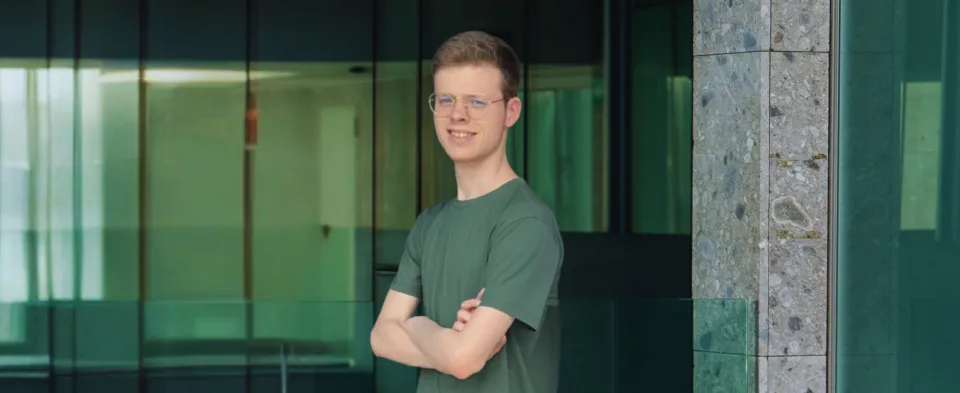
Curiosity Is My Compass
“Ever since high school I was fascinated by science,” says Federico. “I was undecided between math, computer science, maybe engineering. But when I discovered the new BAI course at Bocconi, I realized that it offered something different: a multidisciplinary approach, with a solid grounding in math and computer science, but also elements of physics, economics and artificial intelligence.”
Unusual choice? Perhaps. But perfectly in line with his curious spirit: “I was attracted by the idea of exploring different worlds, without specializing too soon. And then I was able to take the test as early as the end of high school: it went well and I decided to start this adventure right away.”
From Sweden to sailing, via algorithms
In the first year he took the opportunity of a research internship at RISE - the Research Institute of Sweden. From there came a collaboration with the Swedish national sailing team to develop an algorithm that, from weather data, would help athletes plan race strategies.
“Sailing is a very technical sport, where weather plays a central role,” Federico explains. “We developed a deterministic algorithm that, given a certain scenario, suggests the likely best sailing plan. A system simple to train yet powerful.” The algorithm was actually used by the Swedish national team at the 2024 Olympics in France, and that experience resulted in a scientific publication he co-authored, A Data-driven Race Strategy Tool for Olympic Sailing Competitions, which came out in the Journal of Sailing Technology. “I think they even won a medal. It's nice to think that a contribution I provided may have helped.”
Always looking for new challenges
After that experience, he worked on computer vision and artificial intelligence projects applied to image analysis. “This summer I will be doing a new internship at Carl Zeiss, the German company that makes lenses for microscopes and semiconductors. It will be another opportunity to see how AI can be applied to high-tech.”
What about research? “I'm very passionate about it. I wrote my bachelor's thesis on graphs and biology, and I am thinking seriously about a PhD once I get my master's degree from Bocconi also in AI. Working in an environment where you are constantly tackling new problems is what stimulates me the most.” Of Bocconi, Federico really appreciates the problem-solving orientation that creates a challenging environment. Having had the opportunity to do research as early as his first year was an important moment.
A mind open to the world
Federico has already traveled extensively: he has been to Africa while still in high school for fencing competitions, to the United States for a course, and spent a semester in Hong Kong. “It was an intense experience: a less theoretical, but very project-oriented academic system. And a completely different culture. I would also like to use the PhD to continue exploring the world.”
Driven by curiosity
“I haven't yet decided exactly what field to specialize in, maybe computer vision, AI applied to medicine, or even quantum computing. But I know I want to keep learning.” Research, for him, is a space of intellectual freedom and continuous discovery: “For me, studying has never been just a duty. It is a way to explore, make connections and solve problems. And, ultimately, to learn more about the world.”